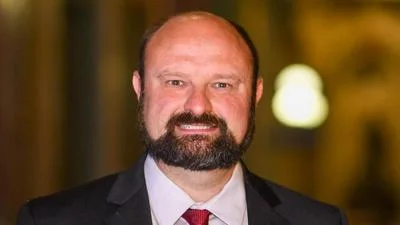State Representative Charles Meier (IL) | Representative Charles Meier (R) 109th District
State Representative Charles Meier (IL) | Representative Charles Meier (R) 109th District
At the start of each new General Assembly, the Illinois House of Representatives engages in a debate over a resolution that sets the rules for its operations. Currently, Democrats hold a supermajority in the Illinois House, giving them significant control over legislative proceedings. In response, House Republicans have called for increased transparency and fairness in the legislative process.
State Representative Charlie Meier has voiced his opposition to the current rules. He stated, "Mere hours before we were expected to vote on them, the House Democrats once again proved that they are more focused on preserving their own power than serving the people of Illinois. Once again, a rules package was pushed through that will allow for the same old tactics that will be used that were used by former House Speaker Michael Madigan, who currently is standing trial in a federal court for corruption charges. This is not the fresh start that the people of Illinois deserve. I stand with House Republicans in building a future where Illinois thrives – not through backroom deals, but through a transparent legislation process that allows for all of Illinois to be represented."
House Republicans have put forward several proposals aimed at making the legislative process more transparent and representative of all citizens in Illinois. Among these proposals are HR 16 through HR 26 which include measures such as eliminating loopholes allowing resolutions to bypass publication requirements (HR 16), mandating committee hearings and votes on bills with bipartisan support (HR 17), and ensuring public disclosure of Senate bill sponsorship pre-filings (HR 18).
Other proposed changes involve setting minimum review periods before final actions on appropriation bills (HR 19), using conference committees to maintain consistent bill numbers throughout consideration (HR 20), and reducing consent calendar items from 80 to 25 (HR 21). Additionally, they propose restoring supermajority requirements to close floor debates (HR 22) and ensuring member access during business hours (HR 23).
Further recommendations include requiring audio recordings from committees and task forces to be accessible online within 24 hours (HR 24), necessitating record votes when closing floor debates if unanimous consent is denied (HR 25), and allowing each member to designate one priority bill per session for guaranteed committee hearing and vote (HR 26).






 Alerts Sign-up
Alerts Sign-up